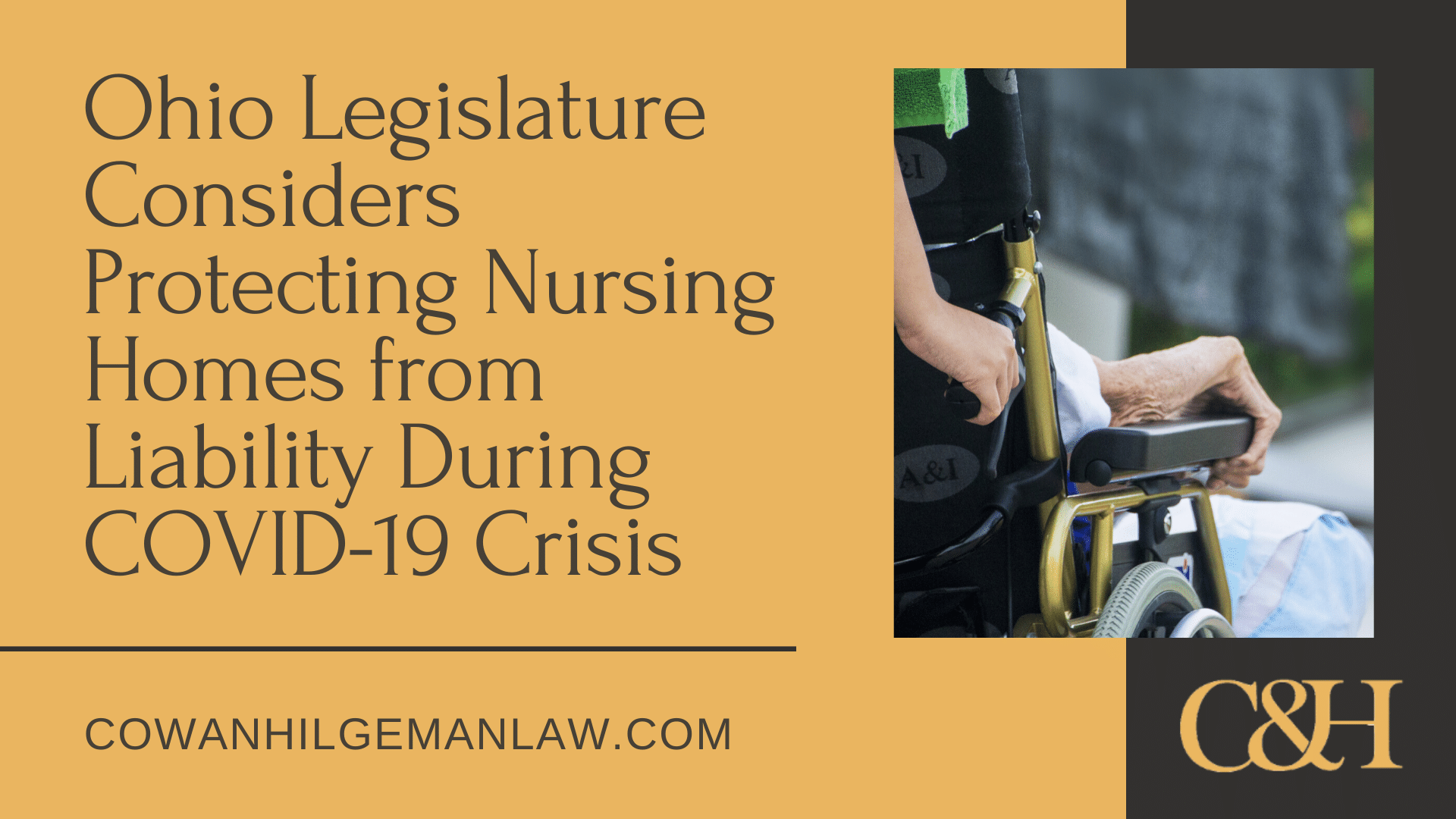Understanding the extent and impact of the COVID-19 pandemic is a difficult task. Researchers are still searching for a cure for the virus, and meanwhile cases are skyrocketing across the US. In Ohio, one of the most impacted sectors of the state has been to residents in nursing homes and other related healthcare fields.
As of June, the Ohio Department of Health found 1,860 of the 2,611 confirmed or probable COVID deaths were those of Nursing home residents. That’s a whopping 70% of total cases, leading to an understandably upset and fearful public. With potential lawsuits looming, Ohio lawmakers are taking steps to address how these cases will be handled.
Two bills have been put in place to protect businesses, especially nursing homes, from COVID related suits: Ohio Legislature House Bill 606 and Senate Bill 308. The spirit of these bills are very similar, but the Senate Bill reaches beyond the protection provided in the House Bill.
HB 606 was passed on May 28th, 2020, and basically is attempting to protect a variety of groups, particularly health care workers/providers. This bill would grant immunity to healthcare providers from “professional discipline or tort liability for acts, omissions, or decisions related to the provision of health care services, including the decision to withhold health care services.” Furthermore, it would protect them from any liability that was a result of a director’s order or executive order and liability from the inability to diagnose, test, or treat an illness due to these same circumstances.
While this does provide an enormous amount of protection to providers, they can still be held liable in the instance of “gross negligence” (conduct that is indifferent to the rights of those under their care) or “if their act, omission, decision, or compliance constitutes reckless disregard for the consequences, constitutes willful or wanton misconduct.”
The last item in the bill grants protection to businesses from suits that claim liability for exposure, transmission, or contraction of COVID-19. Again, the business can be held liable in the case of reckless or intentional misconduct, and willful wanton misconduct. Beyond this, an important aspect of the bill states that “executive orders, director’s orders, and federal guidance do not establish a new cause of action and are not admissible evidence at trial.”
On June 3rd, 2020 SB 308 was passed, and it expands upon the ideas laid forth in HB 606. It has an identical take for the stance on healthcare providers, and about what can be admissible in court. Yet is has two root components that are extremely different. The first is that beyond protecting a business in the course of business, but also protects them from “liability for any act or omission that may occur in the course of the business providing services as a result of or in response to COVID-19.”
The second aspect that is different from HB 606 is the amount of time this protection is applied. H.B. 606 will apply retroactively from the Governor’s Executive Order 2020-01D, issued on March 9, 2020, through to December 31, 2020, while SB 308 provides no such date of determination. Since no date has been provided, one can assume that this protection will apply for the duration of the pandemic.
While these bills have passed at their respective levels, they have yet to reach the Governor’s office. These variations will have to be resolved and identical bills passed before they reach that point. Yet unless there is a major shift in perspective in both the House and Senate, it appears that businesses and health care providers will have a considerable amount of protection from liability during the COVID-19 crisis.
If you or a loved one has been impacted by poor standards of care at an Ohio nursing home, assisted living or long-term care facility, it is vital that you speak with and experienced nursing home attorney. Cowan & Hilgeman has recovered millions of dollars in compensation on behalf of clients who were failed by the people and companies that were supposed to protect them. Understanding the legislative landscape during such uncertain times requires a strong yet empathetic guide. Call (937) 222-2030 today to schedule your free online or phone consultation with one of our nursing home attorneys.
Source
- https://www.legislature.ohio.gov/legislation/legislation-documents?id=GA133-SB-308
- https://www.legislature.ohio.gov/legislation/legislation-summary?id=GA133-HB-606
- https://www.10tv.com/article/news/health/coronavirus/nursing-home-residents-still-majority-of-coronavirus-deaths/530-9c42eb67-b867-4fb8-b07e-d94f04df8ca0

